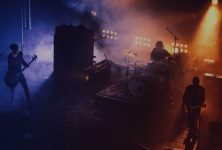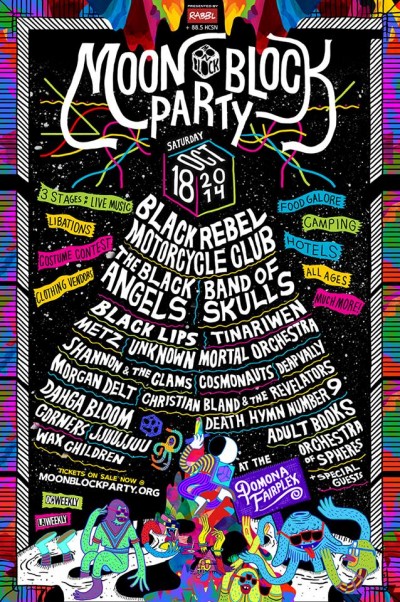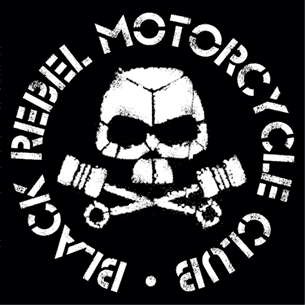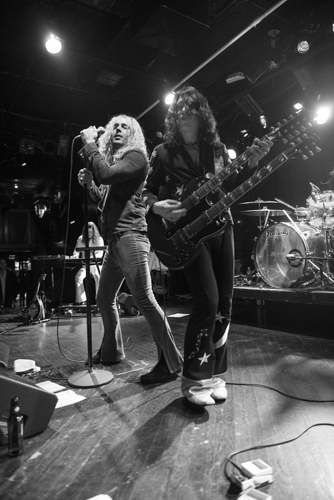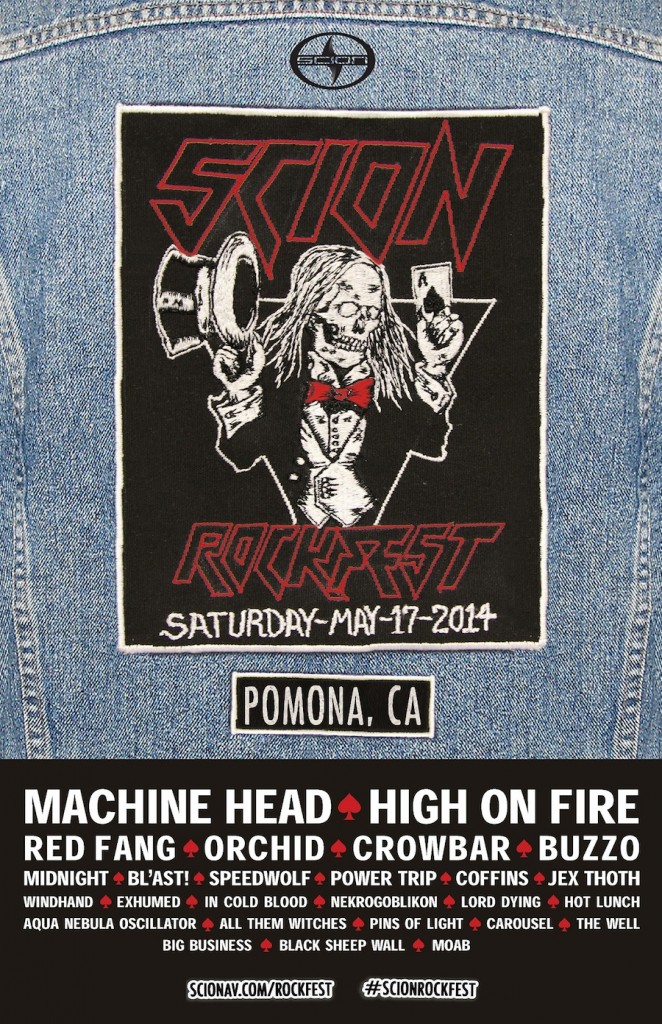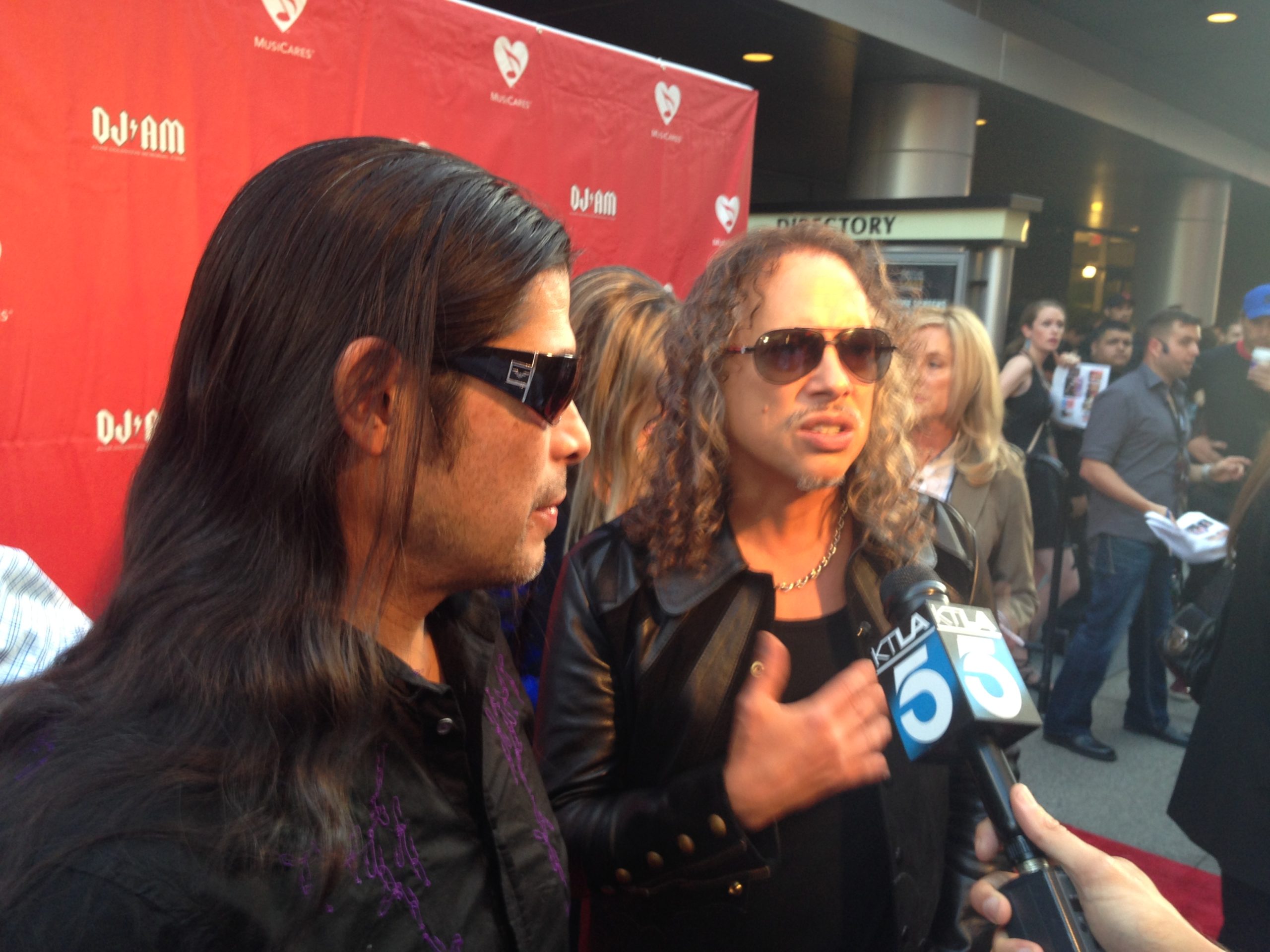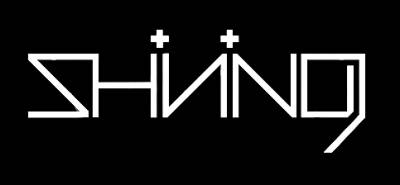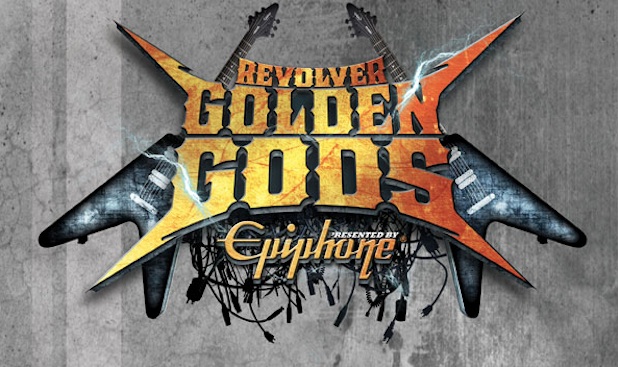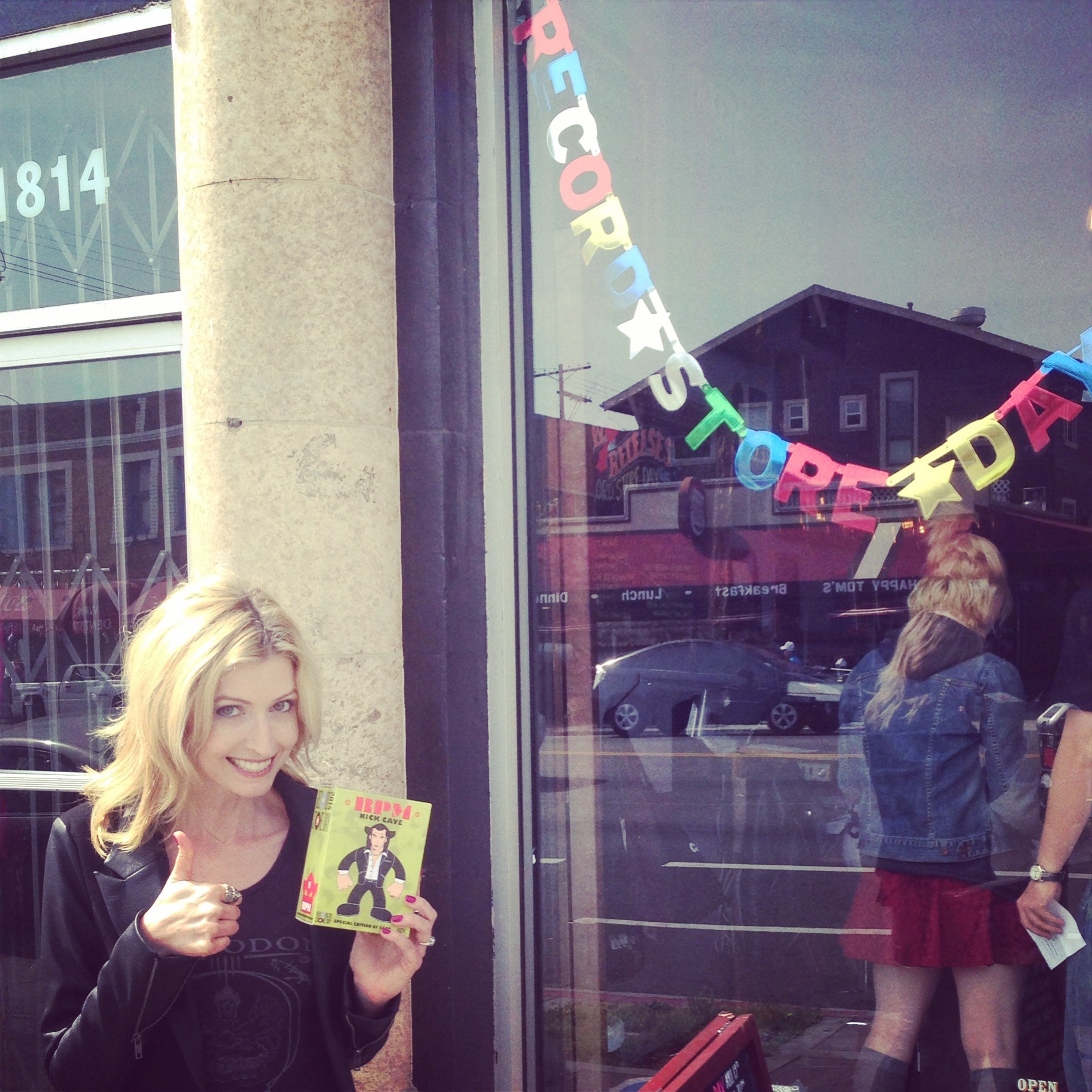The post-rock band Red Sparowes have been creating mind expanding soundscapes since the early 2000’s. From the basement dressing room of the Great American Music Hall, with a sleeping merch guy on a couch behind me, I chatted with 3/5 of the band about the beginning through the now. It was very much apparent that Red Sparowes has an agenda for their fans, and that’s to let them create their own experience from their music. It was an interview that made me leave feeling smarter.

HardRockChick: I wanted to start out talking about how you got your name and your origin story; how you met.
Greg Burns (bass, pedal steel): The name comes from a line in a T.S. Eliot poem. There’s a line where he talks about the sparrows in the gutters. That line was picked out by the earlier lineup. The original band name was Sparrows, and it turned out that there was some other band named Sparrows in the ’60s. So we changed the spelling at that point to the old english ‘Sparowes’. A friend of ours who’s a lawyer said that that wasn’t enough. So then we added ‘Red’. So that’s why it’s ‘Red Sparowes’ with the old english spelling.
“So we never meant to start a band.”
As far as the origin goes, I’d known Jeff Caxide, the bass player for Isis, from Connecticut where I grew up. I’d been living in LA, and all the Isis guys moved out to LA. So I went out to meet them for drinks, and at that point, Cliff and I met. And the original lineup which was Josh and Dana, Jeff and myself; we were just all there, and got excited about music, and decided to try jamming. So we never meant to start a band. All of a sudden we just had all these songs, and we decided to record them. And then we decided to try playing a show, and it just snowballed from there.
HRC: Very organic. I read in the early days you opened for Dillinger Escape Plan and then, later on, Nick Cave. That’s an interesting progression. Any fun memories you can share?
Dave Clifford (drums): Well, the Nick Cave and the Bad Seeds shows…that was really awesome. How that all came together was cool. I knew Jim, one of the drummers in the band, for a long time. He got the other guys to listen to us, and they liked it, and let us come play with them. It was pretty cool. We never thought that our music was suited for them, but they thought it was really great and were very enthusiastic about it. It was great, and I think we went over pretty decently with the audience, too.
GB: No tomatoes thrown that I saw. I feel really good about all the bands we’ve opened for, and it’s nice being in a band that can do that. And I think that being instrumental probably has a lot to do with it. But Dillinger was awesome- we had all known those guys for a long time, so it was just sort of a natural friendship. We played a series of shows with them- 4 maybe 5 shows- but our first show was like the third show we’d ever played. So it was a great way to sort of kick start things. It was fun.

HRC: Being an instrumental band, I wonder if when you’re writing songs if you ever have a desire for lyrics to be in there, or if you would ever consider lyrics in the future…or is it a very conscious rule to not have lyrics, ever?
Emma Ruth Rundle (guitar): I think we may incorporate some. I mean, there are vocals on the record that we just finished, but there are no lyrics. At some point, I think as the band progresses…we don’t want to be limited by any sort of rule, whether to have vocals or not to. I mean, it seems, part of the post-rock genre is there are no vocals allowed. But we certainly don’t want to be limited by that. At some point in the future, we may.
“The weird thing is that when some word got out that we were putting in vocals on our record, all these people assumed they would be cookie monster vocals.”
DC: I think that, as far as, like, evolving, just the voice as an instrument on music I think in certain sections would be really cool. But I think it is one of those things where we don’t want it to really be just lyrics. We’d like it to be something that is kind of more indistinguishable for what it is. Some kind of way that is not interfering with the music, but part of the sonic landscape. The weird thing is that when some word got out that we were putting in vocals on our record, all these people assumed they would be cookie monster vocals. A lot of people kinda freaked out about it.
HRC: There were 4 years between albums. How long did the writing process take? Were you working on it on and off the whole time? Or was it more just before you went in to record?
“Everything was just supercharged.”
GB: Well, specifically, we started writing right after Every Red Heart, but what happened is that we went through a line up change. But before we went through the line up change, there were some geographical challenges because we had a member living in New York. Everything really sort of slowed down. We were writing in LA as part of the band, but kind of holding back in a lot of ways. So there were pieces here and there. So we had a lot; a lot recorded and demoed in our own little studio that we have. But nothing was in a finished state because we were in this weird sort of limbo. As soon as we found Emma, everything came together. Although it was interesting, we wrote a lot of stuff when Emma came in, because we were just really inspired by having her. Everything was just supercharged. We ended up not using a lot of what we had already written. Which is great, that is what I would have really wanted. Everything felt fresh and really exciting.
HRC: That’s really sweet. Do you think you’d ever go back and rework any of those original pieces?
DC: I think it would be kinda worth it to go back and listen to some stuff and see. I think everybody kinda has….we have a lot of ideas now and it’s pretty easy to come up with stuff whenever we have done something. I think we are probably going to just continue to move forward because we have a lot going on. But I think it would be interesting to go back and listen to see if there’s anything great that we’ve forgotten.
HRC: The visual that you have in your live show- how do you come up with those, how are they made, and what’s the inspiration?
DC: Each one is from the specific albums; they’re kinda tied to the concept for the album. Like, the couple that we play from Every Red Heart are themed to that, and the couple from the first record are tied to that. And most of them other than one new one is found footage, or purchased footage. But we’ve all collectively worked together on shooting stuff, or editing and putting it together. It’s supposed to be something to just create a total environment, for when people go and see the band, they can actually get what they want out of the visuals or the music. They don’t necessarily have to get the idea. I like it when the visuals definitely are conveying something- some sort of idea- rather than…I’ve seen so many bands where it doesn’t seem like there’s any real purpose to it. It seems important to have that.
HRC: Do you feel like the visuals lock you into a setlist?
DC: We change the sets a little. It’s convenient to be able to bring Final Cut on the computer and move things around. But we pretty much always play the same set.
GB: We allow ourselves, well, we usually bring several DVDs so we have a choice. And then we definitely allow ourselves room in between songs to play around and sort of improvise a bit here and there. So there’s still room for….I guess I feel like there’s always a response to the energy of the show that might get lost if it was super rigid. But we leave room for that as much as we can.
HRC: The album title- can you talk about that for a little bit?
“And in a lot of ways that’s really helpful, but in other times it can have a disastrous effect.”
DC: The Fear Is Excruciating But Therein Lies The Answer? Well, it’s tied into the concept of the album which is about wrong ideas and how our human brains are programmed to be able to make quick conclusions and to connect the dots to things really rapidly. And in a lot of ways that’s really helpful, but in other times it can have a disastrous effect. From that, it’s connected to the whole history of science- throughout all of this evolutionary progress that we’ve made, all the kinds of wrong ideas that have come up, and this ongoing paradigm shift that continues throughout time. What is really interesting to me about that concept is how often wrong ideas can really proliferate. So it’s basically about that. The way to find meaning- you can be very afraid of not knowing something and wanting to find answers, but to just jump to a conclusion out of fear is very dangerous.
HRC: What’s an example that’s on your mind that may have sparked that idea?
DC: I suppose in real emergency situations, like 9/11 or something. People were very panicked, and imagining all kinds of scenarios about what was going on because it’s scary. You don’t know what’s happening. Is a plane going to crash into my house the next minute? So that is an example; conspiracy theories where people try to find some other explanation that can be the easiest one to jump to. Also, things like celebrity deaths, hoaxes and things like that. Where people automatically believe something that they read online or something because it exists. They’ll just believe it without doing any investigation.
HRC: What do you want people to walk away from your show feeling or thinking?
DC: With a handful of records…
GB: Well I guess I would just hope that every person could really just sort of experience their own unique feeling. I wouldn’t want to hope anything. A lot of what we do is just really try to put things out there in a way that people can relate to it how they want, and get what they want from it. Hopefully that they would just come back to another show. But besides that, just to open themselves up to it and allow themselves to take it in for what it is.
HRC: Last question- what do you think is the most important event in music ever, and what is your guilty pleasure music?
GB: Oh man, I can tell you my guilty pleasure music right away. I think Chamillionaire is amazing. Yeah.
ERR: I think the most important event in music…..electricity. That changed music forever.
GB: That’s good.
DC: I don’t have any guilty pleasure music. I appreciate anything for what I appreciate it for. So there’s nothing I feel like I have to be ashamed of liking.
GB: He’s afraid to say Chamillionaire, basically.
